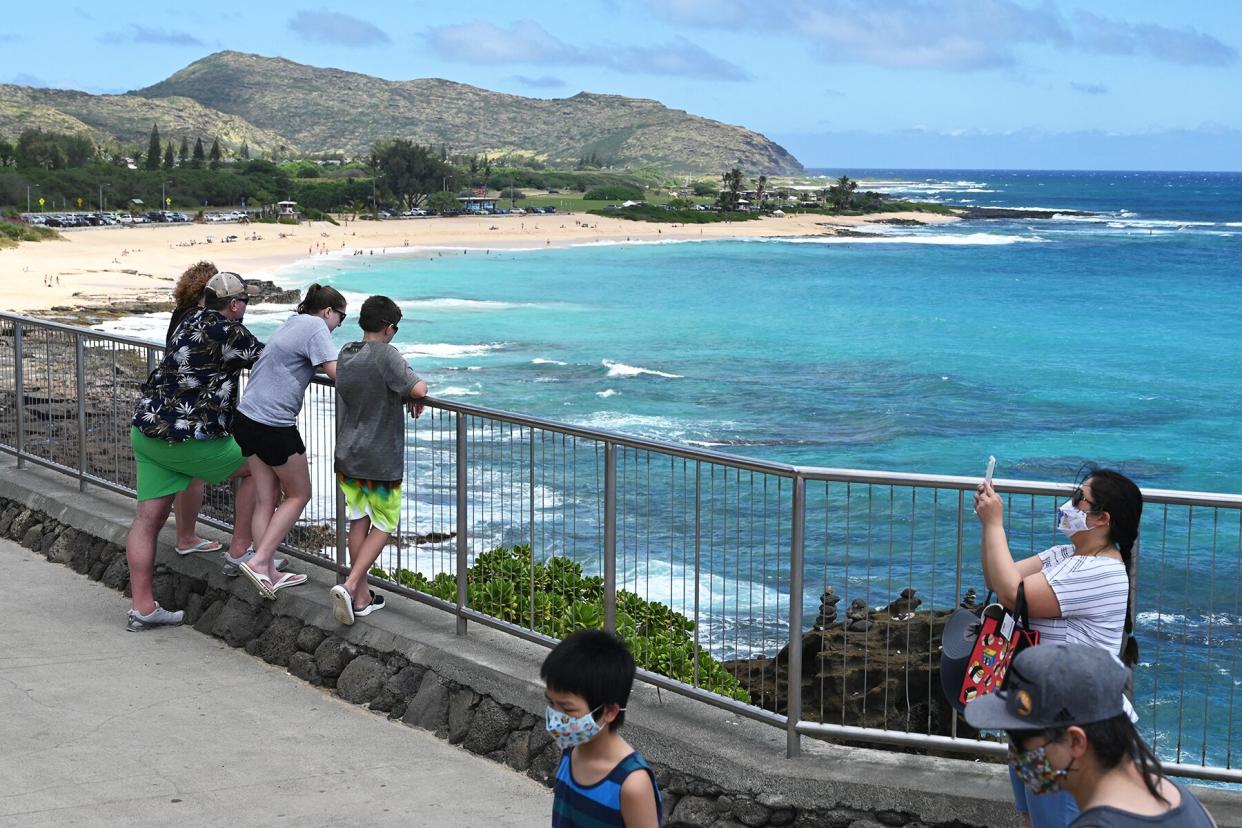Hawaii to lift COVID-19 Testing, vaccination, quarantine requirements

Daniel Slim/Getty Images
Hawaii will end its Safe Travels program later this month, waiving all vaccination or testing requirements for domestic travelers, the state's governor announced on Tuesday.
Starting March 26, the state will allow domestic travelers to visit without any COVID-19-related documentation and without the need to quarantine, Gov. David Ige tweeted. International visitors traveling to Hawaii from overseas will still need to be vaccinated and show proof of a negative COVID-19 test taken within one day of their trip, in line with federal rules.
Beginning March 26, domestic travelers entering Hawaiʻi will no longer need to quarantine or show proof of vaccination or a negative COVID test result.
— Governor David Ige (@GovHawaii) March 1, 2022
"We've worked hard to protect our community. But the pandemic isn't over," Ige wrote. "You don't need an emergency proclamation to take precautions to keep yourself and your family healthy. If you feel sick – don't go out. Don't travel. If you have COVID symptoms, get tested."
The decision to eliminate the Safe Travels program comes months after it was originally slated to end when Hawaii hit a 70% vaccination rate, which was postponed due to the delta variant. The state has so far fully vaccinated 76.5% of its population, according to the Department of Health.
The decision to relax entry protocols also comes a week after the island of Maui dropped its vaccine or test requirement for indoor spaces like restaurants and bars. On March 6, neighboring Honolulu will also end its vaccine or test requirement for businesses like restaurants, according to Safe Access O'ahu.
Hawaii first created its Safe Travels program in October 2020, allowing domestic travelers to skip quarantine if they showed proof they were fully vaccinated or showed proof of a negative test before traveling. In January, Ige mulled the idea of changing the definition of "fully vaccinated" to include a booster shot — and requiring that as part of the Safe Travels program — but a month later he reversed course.
While Hawaii is making it easier for travelers to visit, Ige said the statewide mask mandate will remain in place.
"Hawaiʻi maintained its mask mandate, and our consistency helped to keep COVID case numbers/hospitalizations as low as possible during the surge," he wrote on social media. "It's one of the reasons Hawaiʻi has the 2nd lowest death rate in the country."
Several other states have eliminated mask mandates in recent weeks, including Nevada and California. And the Centers for Disease Control and Prevention has eased its face mask recommendations for a large swath of the country.
Alison Fox is a contributing writer for Travel + Leisure. When she's not in New York City, she likes to spend her time at the beach or exploring new destinations and hopes to visit every country in the world. Follow her adventures on Instagram.